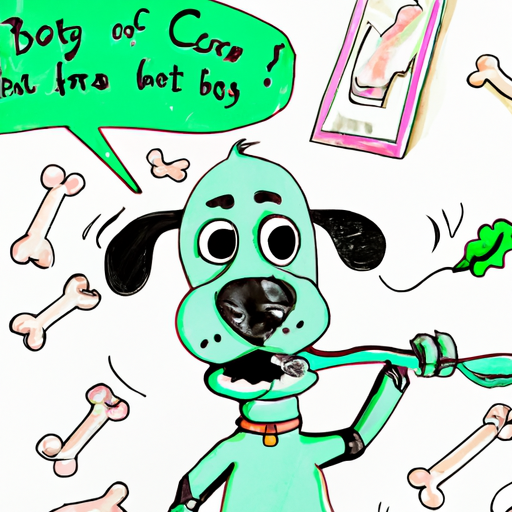Dogs are our best friends, companions, and family members. As a caregiver, you want the best for your furry friend, so when they have bad breath, you naturally want to fix it. This article will help you understand the causes of dog bad breath and provide solutions to improve it.
Understanding Canine Bad Breath
Dog bad breath, also known as halitosis, is more than just a foul smell. It could be a sign of an underlying health issue.
- Dental problems are the most common cause. Just like humans, dogs can suffer from gum disease, tooth decay, and oral infections.
- Digestive issues, kidney disease, or liver problems can also cause bad breath in dogs.
- Certain foods and diets may also contribute to your dog’s bad breath.
Remember, regular vet check-ups can rule out these health-related causes.
Solutions for Dog Bad Breath
Here are some solutions that can help to improve your dog’s bad breath:
-
Brush Your Dog’s Teeth Regularly: Just like us, dogs need their teeth brushed regularly. Use a dog-friendly toothpaste and brush, and aim to brush their teeth at least two to three times a week.
-
Provide Dental Chews and Toys: There are plenty of dog chews and toys in the market that are designed to clean your dog’s teeth and freshen their breath.
-
Change Their Diet: Feeding your dog a balanced, nutritious diet can help to improve their oral health.
Best Products to Combat Canine Bad Breath
| Product Name | Product Type | Benefits |
|---|---|---|
| Dog Toothpaste | Oral Care | Helps to clean teeth and freshen breath |
| Dental Chews | Chew Toy | Helps to remove plaque and tartar |
| Balanced Diet | Food | Helps to improve overall oral health |
Natural Remedies for Canine Bad Breath
Sometimes, the best remedies are right in your kitchen. Here are some natural remedies that can help:
-
Coconut Oil: Known for its numerous health benefits, coconut oil can improve your dog’s oral health when used as a toothpaste.
-
Parsley: This herb is a natural breath freshener. Sprinkle some on your dog’s food to help freshen their breath.
-
Apple Cider Vinegar: Add a small amount to your dog’s water. It helps to balance the pH levels in their mouth, reducing bad breath.
Frequently Asked Questions
Q: How often should I brush my dog’s teeth?
A: Ideally, you should brush your dog’s teeth daily, but if that’s not possible, aim for at least two to three times a week.
Q: Can I use human toothpaste to brush my dog’s teeth?
A: No. Human toothpaste contains ingredients that can be harmful to dogs.
Q: Can bad breath in dogs be a sign of serious health issues?
A: Yes. Persistent bad breath in dogs can be a sign of dental disease or other health issues. If your dog’s breath remains bad even after consistent oral care, consult with your vet.
Remember, as a caregiver, your dog’s health and wellbeing are in your hands. Pay attention to their oral health, keep up with regular vet visits, and your dog’s breath will be as fresh as a daisy.



